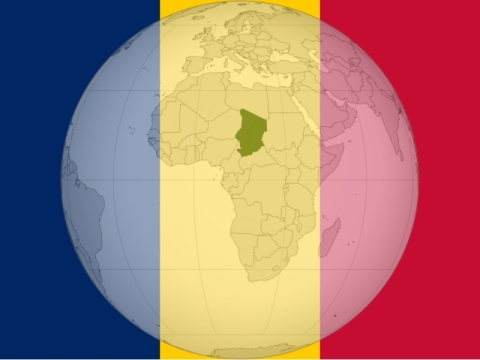News
Chad Faces Dual Humanitarian Crisis:
Floods and Sudanese Refugees

(Source: Global Strategic Communications)
Global Strategic Communications -
An overview of Chad's compounded humanitarian challenges due to widespread flooding and the escalating Sudanese refugee crisis. Key data points include over 1.9 million flood-affected people, 576 deaths, and 681,944 Sudanese refugees. It offers insights on the critical interventions and future risks.
Chad is facing a compounded humanitarian crisis as devastating floods and a massive influx of Sudanese refugees strain the country’s limited resources. According to recent reports, over 1.9 million people have been affected by the floods, which have claimed 576 lives and destroyed 43,000 hectares of farmland. These floods, affecting 119 of Chad’s 125 departments, have also wiped out critical infrastructure, leaving many regions isolated and inaccessible.
Simultaneously, Chad is hosting 681,944 Sudanese refugees fleeing conflict, with numbers projected to reach 910,000 by the end of 2024. Humanitarian agencies report that 88% of these refugees are women and children, many requiring urgent medical care and protection. Efforts to relocate refugees from overcrowded spontaneous sites to more structured camps are ongoing but are severely underfunded, with only 49% successfully relocated.
Simultaneously, Chad is hosting 681,944 Sudanese refugees fleeing conflict, with numbers projected to reach 910,000 by the end of 2024. Humanitarian agencies report that 88% of these refugees are women and children, many requiring urgent medical care and protection. Efforts to relocate refugees from overcrowded spontaneous sites to more structured camps are ongoing but are severely underfunded, with only 49% successfully relocated.
The humanitarian response, led by the Chadian government with support from international partners, is hindered by a significant funding gap. Only 47% of the $1.125 billion required for relief efforts has been secured, leaving critical needs unmet in areas like food security, healthcare, and shelter.
For a comprehensive analysis of Chad’s escalating humanitarian crisis and its potential long-term implications, subscribe to our Substack for the full editorial and expert insights by clicking the link below.
Subscribe here for the full analysis and editorial:
For a comprehensive analysis of Chad’s escalating humanitarian crisis and its potential long-term implications, subscribe to our Substack for the full editorial and expert insights by clicking the link below.
Subscribe here for the full analysis and editorial:
more information: https://newsletter.arac-international.org
Liability for this article lies with the author, who also holds the copyright. Editorial content from USPA may be quoted on other websites as long as the quote comprises no more than 5% of the entire text, is marked as such and the source is named (via hyperlink).






